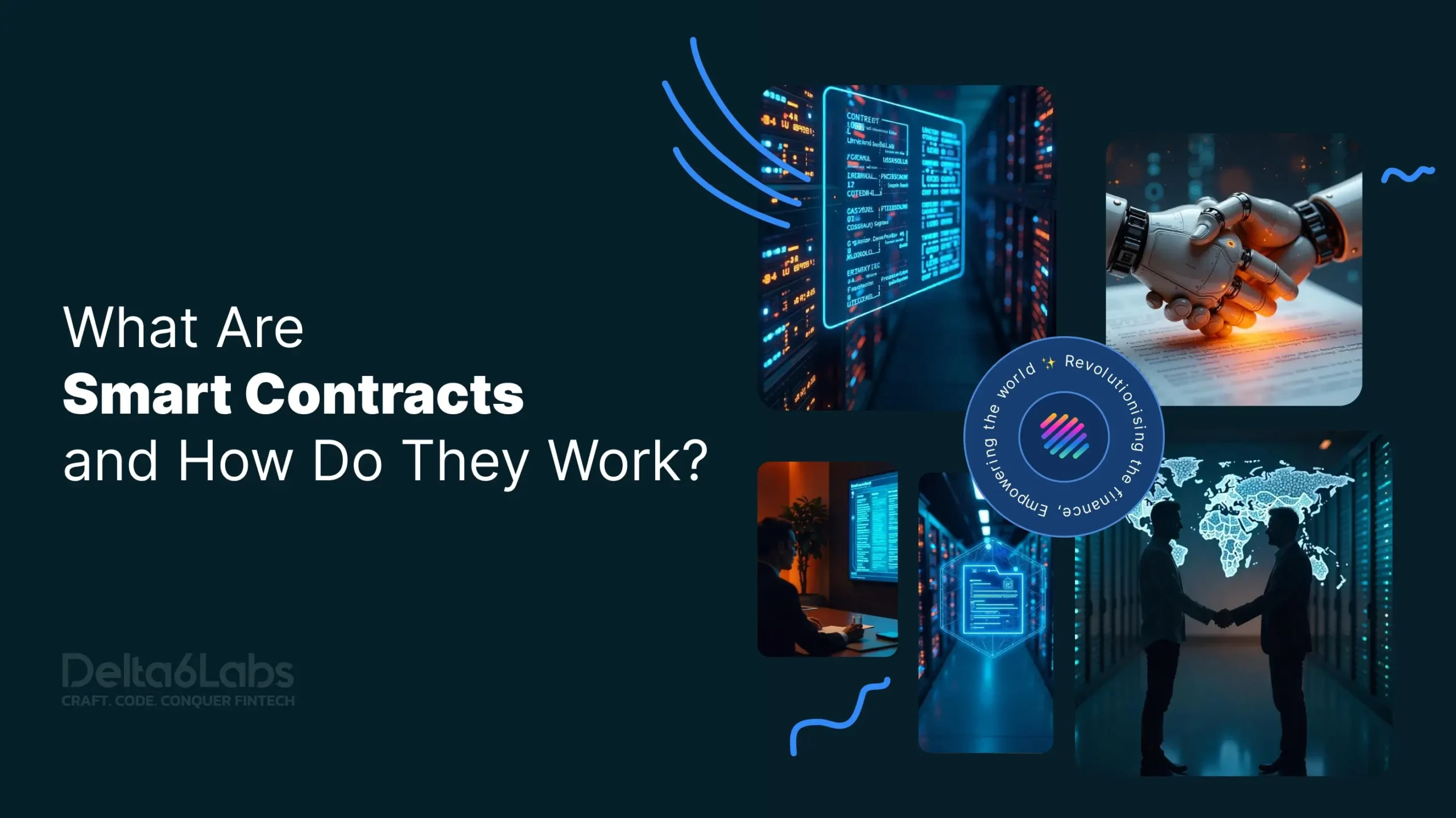What Are Smart Contracts and How Do Smart Contracts Work?
Table of Contents
What Are Smart Contracts?
Generally, Smart contracts execute digitized agreements automatically without the need for intermediaries. They can also automate workflows to trigger the next action when the predetermined conditions are met. The term “smart contract” may have gained popularity recently, but its history is way older than the whole crypto market. It was first proposed by an American scientist named Nick Szabo in 1994. He also suggested the execution of smart contracts for combining derivatives and bonds. The global market trends are showing tremendous growth in the future for smart contracts. The global market of smart contracts is valued at 2.4 billion USD in 2024 and is expected to grow up to 12.5 billion USD by 2032.
How Do Smart Contracts Work?
Smart contracts are also like traditional contracts, binding on the two parties under the ambit of predetermined terms and conditions. Smart contracts are deployed using blockchain technology. Here is the step-by-step process of working of the smart contracts:
- Identify Agreement: Multiple participants who are willing to exchange digital assets or services must concur with the terms and conditions they are satisfied with.
- Contract formation: in this step, the participants set terms and conditions in the transaction because smart contracts automatically execute the action once the conditions are met. The technology that will be used to program smart contracts will also be decided by the two parties.
- Coding and Encryption: A computer program is drawn that will automatically execute itself when the predetermined conditions are satisfied. Once the program is written, the program is encrypted to provide secure authentication and transfer of data and information among parties binding to the smart contracts.
- Execution: When the predetermined conditions are met, the smart contracts are activated as per the when/if…then statements.
- Record Network Update: when the smart contracts are executed, the information on all the nodes on the blockchain is updated.
Types of Smart Contracts
Smart Legal Contracts
Smart contracts are protected by law. Smart legal contracts are binding on the parties that are signatories to these contracts. These contracts are both human-readable and machine-readable.
Decentralized Autonomous Organisations
DAOs are entities that are not governed by any central authority. Only the individuals who have the tokens form a governing body to make decisions.
The power is distributed among token holders, who can cast votes to participate in the management and make decisions.
Application Logic Contracts
These contracts are also known as ALCs. They are drawn using application-based code. These contracts enable seamless integration among machines and software, such as blockchain and the Internet of Things. They are not signed between humans and organisations.
Benefits of Smart Contracts
Efficiency and Speed
Smart contracts are designed to execute themselves automatically when the decided parameters are met, while traditional paper contracts take time to get signed by the parties and are less efficient.
Transparency
Smart contracts are signed between two parties who are willing to participate in a transaction, but no third party is required. Smart contracts can execute themselves. Hence, they don’t need any human interaction or help, which makes them more transparent.
Reduced Costs
Smart contracts are designed to execute themselves automatically when the parameters are met. Due to this, intermediaries are not needed. Hence, total costs are less compared to traditional contracts.
Security
Smart contracts are encrypted during the coding process, and if the program used to create the smart contracts is robust, then the chances of any fraud or theft are very low.
Immutable
Smart contracts are designed in such a way that they are always free from forgery. Once the computer code is deployed on the blockchain, it cannot be altered; it can only execute the agreement as mentioned in the code.
Use Cases of Smart Contracts
Smart contracts are now used in various industries and markets because of the security and transparency they provide. Some of them are as follows.
Royalty payments
Royalty payments through smart contracts can help new artists in the media and entertainment industry because smart contracts can predetermine the share of the artist and the company without the involvement of other parties.
Conversion of assets into NFTs
It has become easy to create non-fungible tokens (NFTs) because smart contracts have allowed ownership to be assigned to movable digital assets.
Smart contracts have made digital assets tangible and valuable, like real-life assets. Smart contract development companies like Delta6labs are doing a remarkable job of converting digital assets into NFTs.
Supply Chain
Supply chains face lots of problems because of the paperwork needed to draw and sign the required agreements. Smart contracts can introduce tools for maintaining the ledger, error-checking and transfer payments.
Real Estate
we are aware of the time-consuming and frustrating process of the transfer of attorney between the vendor and the buyer. Smart contracts have made the process easy. As soon as the money is transferred into the account of the vendor, the smart contract will transfer the power of attorney to the buyer.
Healthcare data management
Smart contracts have made it easier for hospitals to maintain patients’ data and other important information. Smart contracts have made data recording more efficient and open.
Limitations of Smart Contracts
Smart contracts have many uses and benefits in various industries, but they also have shortcomings as well. Here are some limitations of smart contract
Rigidity and Irreversibility
Smart contracts are irreversible because once a computer code is fixed on a blockchain, the information or data is stored in the blocks, it cannot be changed. Any error in the code will be time-consuming and expensive to correct
Loopholes
Smart contracts are still new in the industry, and not many people are technically sound enough to understand the whole process. It’s not necessary that all the participants will follow the concept of good faith. That’s why there are chances of contract loopholes
Legal Issues
There is no fixed set of rules and regulations for the smart contracts. These contracts are self-governing, only the participants are responsible for the decisions they make, which can have implications in the long run
Scalability issues
The transactions in a blockchain are a time-consuming process because smart contracts copy each transaction of every node in the network. Any congestion in the process can delay the transaction, and the cost is increased.
Conclusion
Smart contracts have revolutionized the digital asset market. Smart contracts have shown positive signs in various industries. They provide better security, improved efficiency, more transparency and reduced costs as compared to the traditional contracts. The global market of smart contracts is increasing exponentially, and as per the market trends, it is projected to reach 12.5 billion USD by 2032.
Smart contracts have proven their worth in real estate, the health sector, supply chain management, digital identity cards and the conversion of digital assets into NFTs.
Alongside these benefits, smart contracts still have some limitations and challenges, like their irreversible processes, the scalability problem, underlying loopholes and the absence of a legal framework.
Smart contracts are still a growing technology, and they will improve with time, but surely, smart contracts have changed the way we see agreements in the digital finance landscape.
Frequently Asked Questions
Disclaimer:
The information on this blog is for knowledge purposes only. The content provided is subject to updates, completion, verification, and amendments, which may result in significant changes.
Nothing in this blog is intended to serve as legal, tax, securities, or investment advice of any investment or a solicitation for any product or service.






